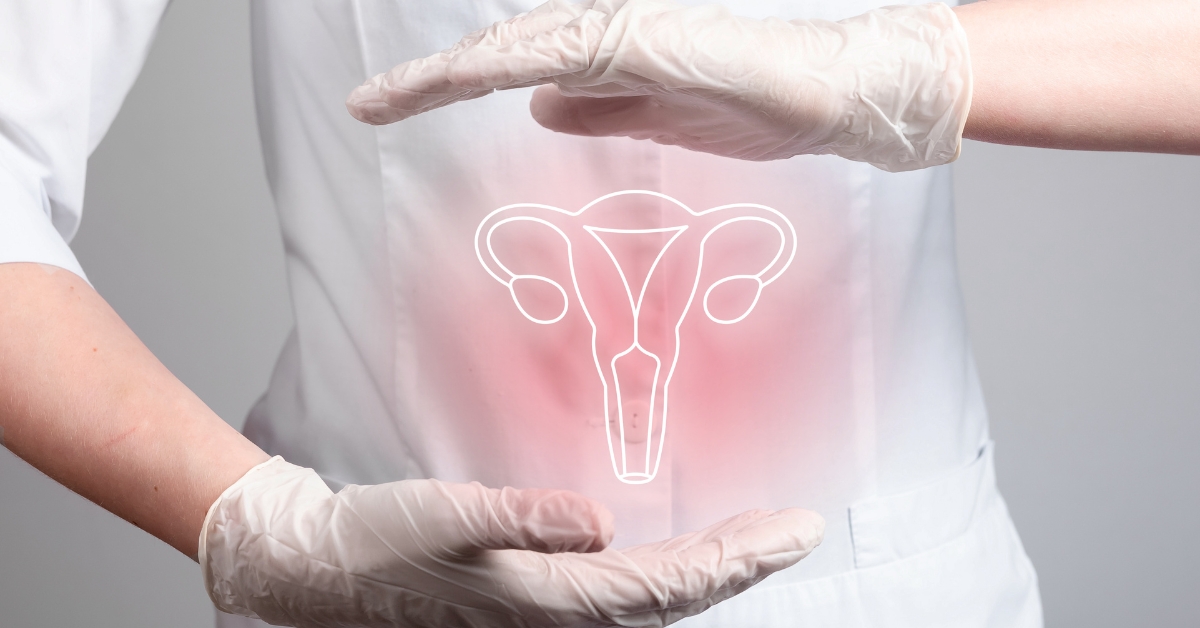Discover the early signs of ovarian cancer and learn about risk factors, screening options, and treatment in this informative article. Stay informed and proactive about your health.
Table of Contents
Introduction

Ovarian cancer, a type of cancer affecting the ovaries in women, poses a significant challenge due to its elusive nature during the early stages.
However, understanding and being aware of ovarian cancer’s initial signs and symptoms play a crucial role in ensuring early diagnosis and effective treatment.
In this article, we will explore the common indicators that may suggest the presence of ovarian cancer.
While experiencing these symptoms does not necessarily indicate ovarian cancer, it is advisable to consult a healthcare professional if any concerns arise.
The “Silent Killer” with Vague Warning Signs

Ovarian cancer is often called the “silent killer” because its early signs and symptoms can be nonspecific, leading to misinterpretation or confusion with other conditions such as irritable bowel syndrome or constipation.
It is vital to be vigilant and recognize the following potential indicators, seeking medical attention promptly for proper evaluation.
- Abdominal Bloating or Swelling: Unexplained abdominal bloating or a persistent increase in abdomen size without an apparent cause may signal ovarian cancer. This bloating can be accompanied by feelings of fullness, even after consuming small amounts of food. Pay attention to the duration and frequency of this symptom, particularly if it persists for several weeks.
- Pelvic or Abdominal Pain: Persistent pain in the pelvic or abdominal region, characterized as pressure, aching, or cramping, could be an early sign of ovarian cancer. If you experience unexplained pain in these areas lasting for more than a few weeks, it is recommended to consult a doctor for further evaluation.
- Digestive Changes: Ovarian cancer can impact the digestive system, leading to alterations in bowel habits. Some individuals may encounter persistent constipation or diarrhea that does not improve with standard treatments. If you notice sudden and unexplained changes in bowel movements lasting for an extended period, it is advisable to seek medical advice.
- Urinary Symptoms: Frequent urination, an urgent need to urinate, or persistent feelings of urinating can occasionally indicate ovarian cancer. Although these symptoms can resemble those of a urinary tract infection, it is important to consult a healthcare professional if they occur frequently and do not resolve with typical remedies.
- Unexplained Weight Loss and Fatigue: Unintentional weight loss and persistent fatigue or low energy levels should not be ignored. While various factors can contribute to these symptoms, if they become chronic and do not improve with rest or lifestyle changes, it is essential to discuss them with a healthcare provider.
- Changes in Menstrual Cycle: Any unusual changes in the menstrual cycle, such as irregular periods, heavy bleeding, or bleeding between periods, should be addressed. If these changes occur suddenly and persistently, consulting a doctor is recommended to rule out any underlying issues, including ovarian cancer.
Identifying Risk Factors

Several risk factors may increase a woman’s likelihood of developing ovarian cancer.
While these risk factors do not guarantee ovarian cancer, it is important to be aware of them for proactive healthcare management.
- Age: The risk of ovarian cancer tends to increase, and most cases are diagnosed in women over 50.
- Family History: Women with a family history of ovarian cancer face an elevated risk of developing the disease. Genetic factors can contribute to this familial predisposition.
- Personal History: Having undergone a hysterectomy (removal of the uterus) or oophorectomy (one or both ovaries) increases the risk of ovarian cancer.
- Genetic Mutations: Genetic mutations, such as BRCA1 and BRCA2, can significantly raise the risk of developing ovarian cancer. Genetic testing may help identify individuals with these mutations.
Screening for Early Detection

There is no recommended screening test for ovarian cancer applicable to all women.
However, specific screening tests may be appropriate for women at an increased risk of ovarian cancer.
These tests can aid in early detection and include:
- Transvaginal Ultrasound: This non-invasive imaging test utilizes sound waves to create images of the ovaries, assisting in identifying abnormalities.
- CA-125 Blood Test: While not specific to ovarian cancer, this blood test measures the levels of a protein called CA-125. Elevated CA-125 levels can indicate the presence of ovarian cancer, prompting further investigation.
Consulting a healthcare professional is essential to determine if screening is appropriate based on individual risk factors and to discuss the benefits, limitations, and potential harms associated with screening.
Conclusion

Recognizing ovarian cancer’s early signs and symptoms is crucial for early diagnosis and improved treatment outcomes.
While the mentioned symptoms can be attributed to various other conditions, it is important to remain vigilant and seek medical attention if any persistent or unusual signs arise.
Regular communication with a healthcare professional is key to accurate diagnosis, further evaluation, and necessary testing to ensure proactive and optimal healthcare management.
FAQs

What is ovarian cancer?
Ovarian cancer is a type of cancer that begins in the ovaries, which are the reproductive organs in women responsible for producing eggs and hormones.
What are the early signs and symptoms of ovarian cancer?
The early signs and symptoms of ovarian cancer can be vague and easily mistaken for other conditions. Common symptoms include abdominal bloating or swelling, pelvic or abdominal pain, difficulty eating or feeling full quickly, urinary symptoms (such as urgency or frequency), unexplained weight loss, fatigue, back pain, changes in bowel habits, and vaginal bleeding after menopause.
Why is ovarian cancer called the “silent killer”?
Ovarian cancer is often called the “silent killer” because its early symptoms are often subtle, easily overlooked, or mistaken for other less serious conditions. This can delay diagnosis until the cancer has advanced to later stages.
Who is at risk of developing ovarian cancer?
Several risk factors increase the likelihood of developing ovarian cancer. These include increasing age, a family history of ovarian cancer, personal history of certain surgeries (such as hysterectomy or oophorectomy), and specific genetic mutations (such as BRCA1 and BRCA2).
Is there a screening test for ovarian cancer?
Currently, no recommended ovarian cancer screening test applies to all women. However, certain screening tests like transvaginal ultrasound and CA-125 blood test may be considered for women at an increased risk of ovarian cancer. It is important to discuss screening options with a healthcare professional based on individual risk factors.
How can ovarian cancer be diagnosed?
Ovarian cancer is typically diagnosed through a combination of medical history evaluation, physical examination, imaging tests (such as ultrasound or CT scan), blood tests (including CA-125 levels), and, if necessary, further evaluation through biopsy or surgery.
What is the treatment for ovarian cancer?
Treatment options for ovarian cancer may include surgery, chemotherapy, targeted therapy, and radiation therapy. The specific treatment plan depends on factors such as cancer stage, overall health, and individual preferences. Treatment is usually personalized and may involve a multidisciplinary approach involving different medical specialists.
Can ovarian cancer be prevented?
There is no guaranteed way to prevent ovarian cancer. However, some risk reduction strategies include discussing risk factors with a healthcare professional, considering genetic counseling and testing for high-risk individuals, and maintaining a healthy lifestyle with a balanced diet and regular physical activity.
What is the prognosis for ovarian cancer?
The prognosis for ovarian cancer depends on factors such as the stage at diagnosis, the type of ovarian cancer, the response to treatment, and individual characteristics. Early detection and treatment offer better chances of successful outcomes and improved survival rates.
Where can I find support and additional information about ovarian cancer?
Various organizations and resources are available to provide support, information, and resources for individuals affected by ovarian cancer. Some reputable sources include cancer centers, national cancer organizations, and support groups dedicated to ovarian cancer.






